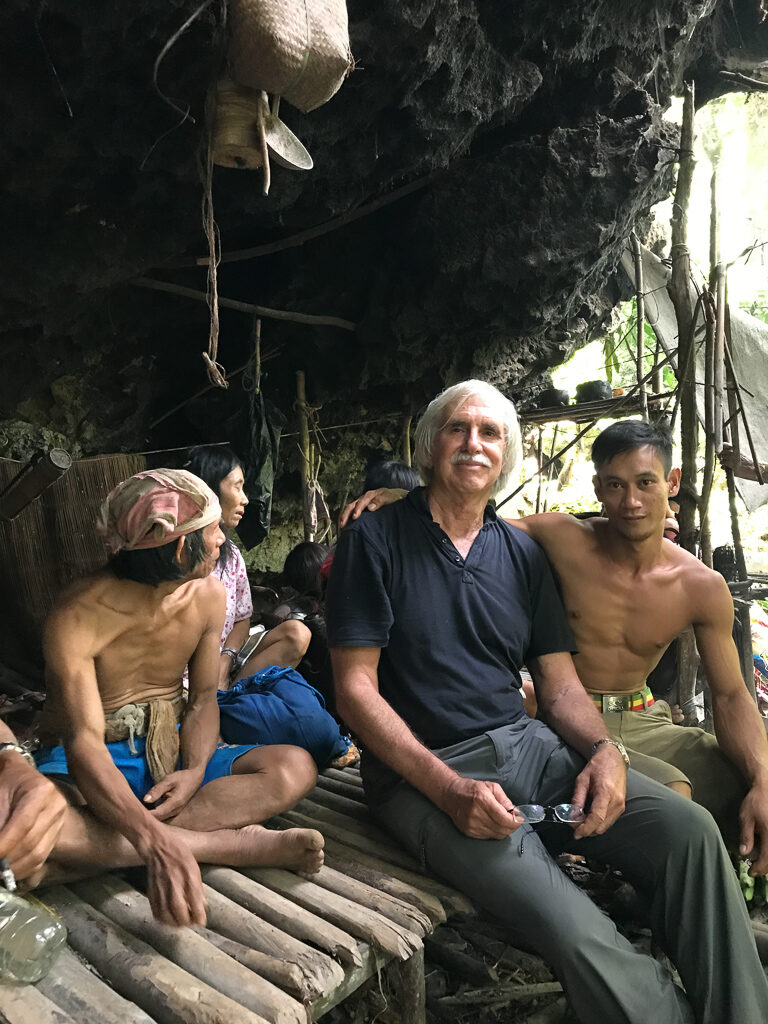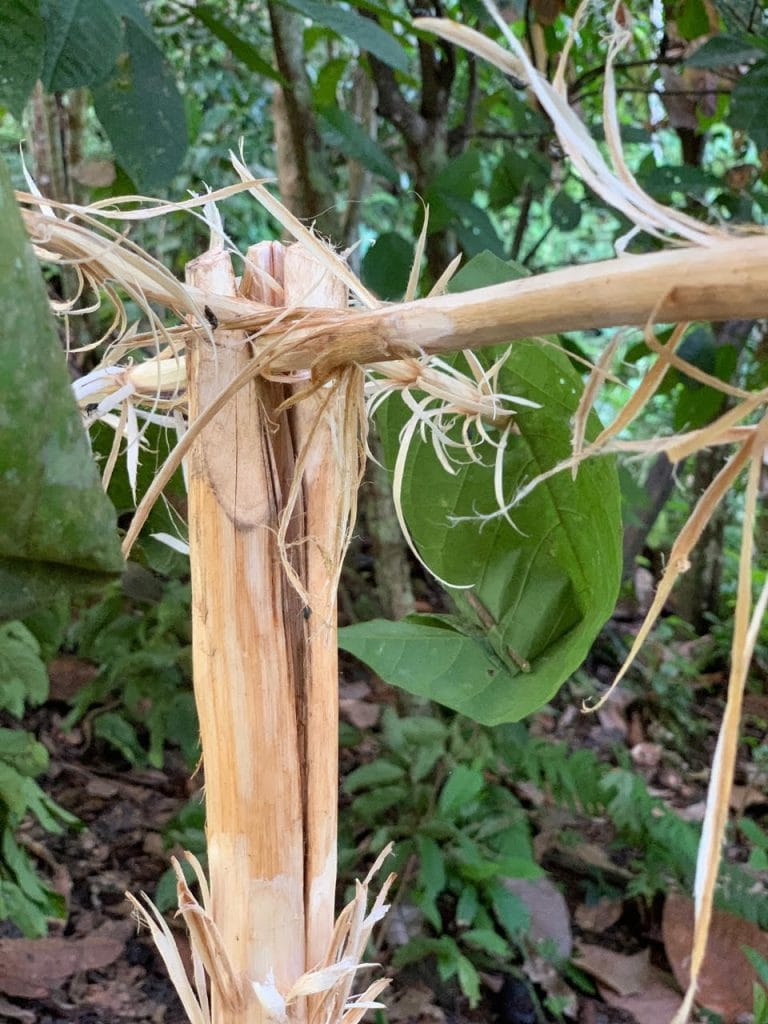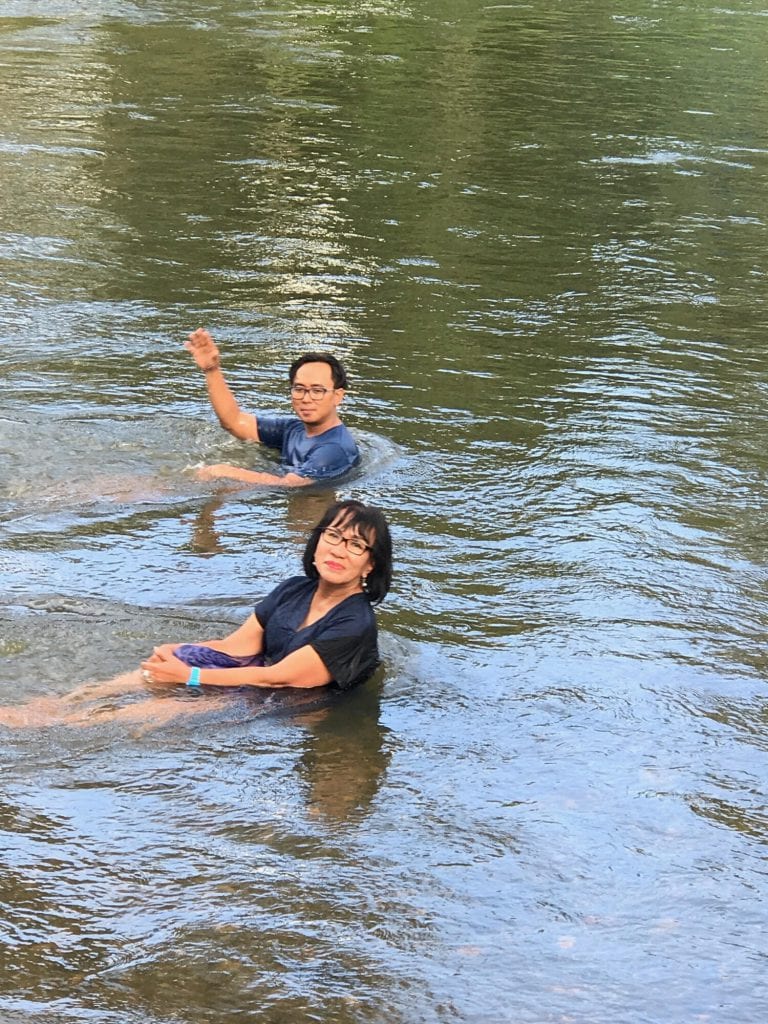
Deep in the remote forests of Borneo lives a society of hunter-gatherers who speak a language never before shared with outsiders, until now.
The latest episode of Origin Stories tells the story of the Punan Batu people and their urgent plea for help to save their forest home. This is the first time their story has been told to the outside world.
It was thought that the hunter-gatherer lifestyle had ended in Indonesia decades ago. In 2018, anthropologist and Leakey Foundation grantee Steve Lansing was in Borneo working on a long-term collaborative project to trace the origins of the indigenous people of Indonesia, when the elected leader of the Punan invited him to come and meet a community of Punan people who were living as hunter-gatherers in a network of caves.
On the first night he spent with the Cave Punan people, as he settled down to sleep in his tent, Lansing heard singing from inside the cave. The singing sounded different than the language the people spoke during the day. What he heard was the song language of the Cave Punan, and it is a language that seems to be unique in all the world. They also told him about another language, a “stick language” that is used to send messages with sticks and leaves.

Lansing soon learned that the Cave Punan had invited him for a reason. Palm oil plantations are rapidly encroaching on their territory, and they need help to stop it.
There are around 50 families of Cave Punan people. They are mobile hunter-gatherers who travel along a network of caves, following the seasons of fruiting trees, animals, and wild honey. Meat is shared by everyone, and so are the plants they gather. Everyone in the group gets what they need. Lansing says the Cave Punan’s level of sharing is unlike any he has ever encountered.
Since first meeting the Cave Punan, Lansing has stepped down from his academic positions to focus his energy on helping them protect their forest and their way of life.
Together with The Leakey Foundatin, Dr. Lansing and his team are working with the Yayasan Konservasi Alam Nusantara, the Indonesian affiliate of The Nature Conservancy, on a plan to support the Punan Batu and secure their rights to their ancestral home. We will keep you updated as to how you can help.
This video is of Ogot, an elder and well-respected member of the community. He is singing in the Song Language inside the Great Cave. Ogot’s song sends a message about the plight of his people and his hope that their forest can be saved.
Listen and share their story.
Thanks
Thanks to Steve Lansing and his colleagues Guy Jacobs, Steve Kuhn, Pradiptajati Kusuma, Hera Sudoyo and Safarina Malik for sharing their work.




Learn more
Learn about the peopling of Indonesia and how ancestry is traced using genetics and linguistics.
Comments 1
This episode is really enlightening, esp the ancient Punan Song Language legacy.
The tribe’s use of the “message stick” reminds me of Romanian gypsy patrins.
Whether Indonesian Punans seek to acclimatise into modern civilisation, or would rather ultimately remain nomadic jungle denizens to preserve their unique heritage, needs much further research.
Thanks Dr Lansing and the team, and to Leakey Foundation Origin podcast team.
Side notes:
The Malaysian Penans have resettled in towns, urban fringes, and most have left, or opted to leave, their hunter-gatherer and nomadic lifestyles.
In media representations, Malaysians especially students, are generally able to identity Penan culture through the elongated earlobe feature.
Recently, some volunteer-based Malaysian NGOs have attempted to address their poverty and raise awareness of education needs through commercial initiatives, eg. marketing weaved crafts.